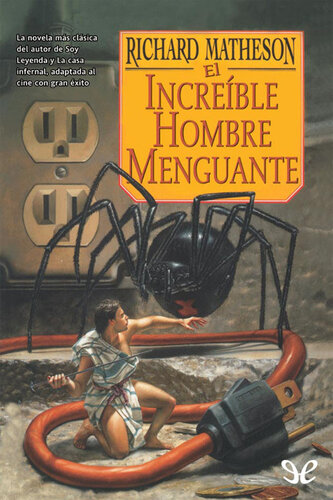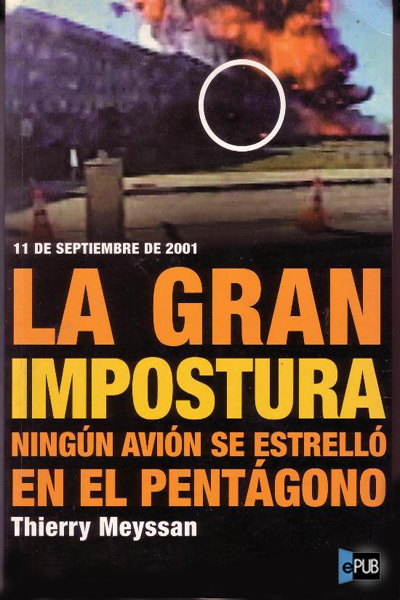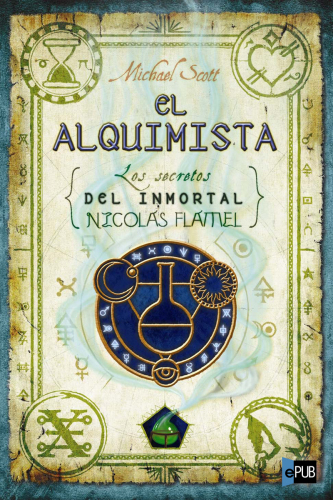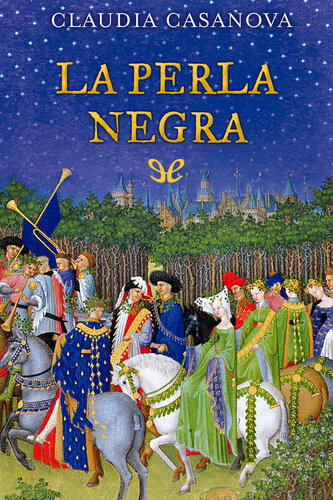oleebook.com
Cañas al viento de Deledda_ Grazia
de Deledda_ Grazia - Género: Ficcion
Sinopsis
Deledda_ Grazia Publisher: papyrefb2tdk6czd.onion, Year: 0101
Descargar
Descargar Cañas al viento ePub GratisLibros Recomendados - Relacionados
Reseñas Varias sobre este libro
I had never read a novel set in Sardinia. When I saw this book I assumed it was by an obscure Sardinian author. Imagine my surprise when I read the blurbs and saw that she was the 1928 Nobel Prize winner in literature! That led me to wonder how many female Nobel Prize winners in literature are out there I had not heard of. (I made a list, at end.)
Sardinia is an island province of Italy, just south of Corsica which is part of France. (see map). The topography of the island, its rural nature, and its poverty are a lot Sicily. The story was published in 1913. While the presence of a few autos in the local city are mentioned, it really has the flavor of the authors childhood in the late 1800s.
Some spoilers follow:
The first few pages outline the setup of the story for us. We have a declining noble family in a decaying mansion. That theme is a genre in itself! I think of The Leopard by Lampedusa The Leopard, On Heroes and Tombs by Argentinas Ernesto Sabato On Heroes and Tombs, Other Voices, Other Rooms by Truman Capote Other Voices, Other Rooms. We also learn a lot about the superstitions of the local peasants, such as Giobiana, a witch, who appears to local women if they spin yarn on Thursday evenings! Theres a lot of local color of the landscape and of rural peasant customs.
There are three sisters, the Pintors, who were essentially terrorized by their now-deceased father. They could not leave the house while he waited to select suitable husbands for them. They never arrived. The youngest sister managed to run off with a lover and the father searched for her until he died under mysterious circumstances.
The two older sisters never answered the runaway sisters letters but they stayed in touch with her son, their nephew, who comes to figure prominently in the story. The sisters remain relatively isolated in their decaying house - pieces of it fall into the street in several scenes. Although they are at times on the border of starvation, they maintain their nobility by maintaining their distance from the common people. Their only social activities are occasionally going to church and to church festivals.
The narrator of the story is Efix, an old man who single-handedly farms and runs what remains of the estate. Over the years most of the land was sold off or lost in lawsuits. Theres no money. He is dedicated to serving them and lives his life vicariously through the sisters, dreaming of the restoration of their nobility. He was secretly in love with the sister who ran off and hes a little bit in love with the youngest remaining sister (now 30-ish). They pay him with IOUs and even talk about him inheriting the estate when they die. (Fat chance hes considerably older than all of them!)
Efix is very religious. Religion sin, guilt, forgiveness, penance - become major themes even though the sisters are pretty nonchalant about religion. They go to church for show and to the church festivals for entertainment. Efix has secrets. He knows the mysteries about the youngest sisters escape and the death of the father and hes not talking.
The runaway sister dies and the nephew they have never met appears and turns their world upside down. Hes good-looking and spends money lavishly at the local festa. Every young woman is after him. But things are not what they seem.
The sisters get further in debt. Theres an old woman in town known as the usurer who gets her hooks into them. The rich widower in town actually a cousin of theirs - wants to take over their estate. Hes secretly in love with the youngest sister. Will he essentially force her into marrying him so the sisters dont end up as beggars on the street?
The theme of decline goes beyond the decaying house and the sisters fall from nobility. The sisters lament that even gentlemen are merchants now. Theres nothing to do in the town. There are abandoned houses in ruins. Malaria is endemic. People live in the past when times were better. She lived so much in the past that the present hardly interested her. The phrase memory sickness is used. By the way, this is the condition of a lot of these isolated rural towns today in Italy and in much of southern Europe. Abandoned villages where only a few elderly folks remain.
Here's a sample of the authors nicely descriptive writing about a church festival:
She seems to be a girl again, on the priests belvedere on a May evening. A great copper moon rises from the sea and the whole world seems made of gold and pearl. An accordion fills the air with plaintive cries. The courtyard is illuminated by a fires rosy gleam that makes the slender figure of the dark musician and the purplish faces of the women and children dancing the ballo sardo stand out against the gray wall. Their shadows move phantoms on the trampled grass and along the church walls; gold buttons, silvery braids of costumes, accordion keys flash and gleam. Everything else is lost in the pearly shadows of moonlight. Noemi remembered never taking part directly in the feast, while her older sisters laughed and enjoyed themselves, and Lia couched a here in a grassy corner of the courtyard, perhaps thinking of escape even then.
The author (1871-1936) grew up in this area of Sardinia that she wrote about. Her family discouraged her writing because, Wikipedia tells us, nice girls didnt write novels for the world to read and ridicule them. She was a prolific writer with dozens of novels and stories although very few appear to have been translated into English.
Here's a list of female Nobel Prize recipients. Of the 120 recipients of the Nobel award in literature by 2023, only 17 are women. I thought it would be an interesting project for someone to read one work by each. Several are poets.
Women who won the Nobel Prize in Literature:
2022 - Annie Ernaux (France)
2020 - Louise Gluck (United States)
2019 - Olga Tokarczuk (Poland)
2015 - Svetlana Alexeivich (Belarus) ...
2013 - Alice Munro (Canada) ...
2009 - Herta Mueller (Germany) ...
2007 - Doris Lessing (Britain) ...
2004 - Elfriede Jelinek (Austria) ...
1996 - Wislawa Szymborska (Poland) ...
1993 - Toni Morrison (United States)
1991 - Nadine Gordimer (South Africa)
1966 - Nelly Sachs (Germany, Sweden)
1945 - Gabriela Mistral (Chile)
1938 - Pearl S. Buck (United States)
1928 - Sigrid Undset (Norway)
1926 - Grazia Deledda (Italy)
1909 - Selma Lagerlöf (Sweden)
Map from researchgate.net
The town of Galtelli in northeast Sardinia, where the story is set from deliciousitaly.com
Sketches of the author from sicilyinsideandout.com
[Edited for typos, spoilers 3/25/22, 11/17/23]anthropology feminist historical-novel ...more171 s3 comments Laura V. ?????511 33
"Siamo canne, e la sorte è il vento.
Non so se Canne al vento possa essere considerato il capolavoro assoluto di Grazia Deledda - come la particolare fama di questopera induce facilmente a pensare - dal momento che, tra romanzi e novelle, finora ho letto purtroppo soltanto una minima parte della a dir poco vasta produzione letteraria della scrittrice nuorese. Obiettivamente, il romanzo non manca di nulla che gli neghi letichetta appunto di capolavoro né, mi sento di dire, sfigura tra le opere dei nostri più grandi autori di fine Ottocento e primo Novecento.
Se La madre mi aveva indignata per il finale con il quale si conclude, se Cosima mi aveva incantata per lo strano senso di sogno che a tratti lo pervade, Canne al vento mi lascia ora un senso di inquietudine e smarrimento difficile da spiegare. Eppure anche qui ci sarebbe da indignarsi (per il giovane e scapestrato Giacinto che, a causa del suo comportamento, si sarebbe meritato di essere rispedito dallisola al continente a suon di calci nel sedere; per donna Noemi che, al fine di fuggire dai sentimenti e dalla rovina economica, si rassegna infine a sposare chi non avrebbe mai voluto), anche qui ci sarebbe da incantarsi (davanti alle immagini di terra e cielo che si fondono in poetiche cornici dellanima) Ma lincanto e lindignazione del lettore sono sopraffatti da un intenso pathos che non viene meno neppure nelle ultime pagine, dal peso del destino che appare ineluttabile e contro cui è impossibile lottare, dal fruscio del vento che serpeggia indifferente nel canneto.
Siamo canne, sentenzia la penna deleddiana per bocca del vecchio servo Efix, e la nostra sorte è il vento: è lessenza del romanzo, il messaggio cardine attorno a cui si svolge la vicenda narrata. Mi ha riportato alla mente limmagine del giunco di Blaise Pascal: Luomo non è che un giunco, il più debole della natura, quindi soggetto a tutte le intemperie dellesistenza, caduco per sua propria condizione. Solo che, aggiunge il filosofo francese, è un giunco pensante e ciò implica un margine di meriti (e demeriti) personali sulla strada sia pur segnata del nostro destino. Del resto, lo stesso Efix, quando decide di recarsi al mulino per parlare con Giacinto, non pensa e agisce di conseguenza per cercare di risolvere una situazione in apparenza già decretata dalla sorte? E, sempre lui, non sceglie forse di ritornare al paese dalle sue nobildonne decadute, sebbene il suo destino gravato dal fardello di unantica colpa non labbia guidato nel frattempo sulla via della penitenza tramutandolo in un mendicante errabondo?
Canne al vento non si limita però a questo: pubblicato nel 1913, esso è anche un romanzo che, tra fatalismo e rassegnazione, tabù e colpe da espiare usque ad mortem, fotografa la realtà sociale dellepoca attraverso i colori inquieti dellincontro-scontro tra vecchio che ristagna e imputridisce e nuovo che erompe e avanza con energica vitalità, magari facendosi largo a gomitate. È la novella società dei poveri arricchiti, mercanti e usurai come il Milese e Kallina, mentre ciò che resta dellantica nobiltà di sangue si gioca a carte la propria dignità o si arrocca sdegnoso in palazzi che cadono a pezzi di giorno in giorno, proprio come le dame Pintor ridotte ormai a praticare ignominioso commercio di verdure pressoché di nascosto; persino il matrimonio di un servo figlio di servi con un rampollo sia pur squattrinato della ex aristocrazia terriera è una palese rottura delle antiche e silenti consuetudini che imponevano a ciascuno di stare se non con i propri pari.
Una lettura che fa male e molto riflettere. E questo perché il senso della vita, che sia dentro o fuori delle pagine di un romanzo, continua a essere il più grande mistero che non ci è dato comprendere.inchiostro-d-isola indimenticabili82 s Emilio Berra253 236
Un peso nel cuore
"Siamo come le canne al vento,(...) siamo canne, e la sorte è il vento."
"Sì, va bene: ma perché questa sorte?"
"E il vento, perché? Dio solo lo sa."
Una Sardegna che sa d'antico. Tre sorelle nubili in una vecchia dimora testimone di un passato di ricchezza e specchio dell'attuale decadenza. Anche la più giovane di queste tre donne "riviveva talmente nel passato che il presente non la interessava quasi più".
Il loro anziano e fedele servitore, presso l'unico podere loro rimasto.
Poi si fa vivo un ignoto nipote, figlio della quarta sorella, ora defunta, fuggita di casa oncora ragazza e mai più tornata.
In contrasto con la casa tetra, ecco "il grande paesaggio pieno di luce", "sotto i monti azzurri e chiari come fatti di marmo e d'aria".
Dietro l'apparente quiete c'è però un delitto e c'è il castigo. Il delitto è segreto e nascosto; il castigo si sconta come un peso nel cuore e dura una vita.
Certo, viene in mente Dostoevskij, ma il mondo e la scrittura della Deledda sono peculiari e legati alla sua terra d'origine lasciata per vivere a Roma ; un mondo quasi archetipo, fuori dalla Storia, fra leggende e tradizioni.
Anche la grande scrittrice sarda, come il celebre autore russo, non è però ripiegata su se stessa.
La sua bellissima scrittura, punteggiata di vivaci note cromatiche, tende a smorzare l'elemento drammatico della realtà rappresentata. Anzi, nelle sue pagine si percepisce chiaramente il soffio lieve che schiude alla luce.letto62 s Sandra937 281
Siamo nati per soffrire come Lui; bisogna piangere e tacere
Un romanzo con la musicalità di una sinfonia di Mozart, con una trama tenue, che allinizio sembra strutturarsi in una vicenda dai toni dostoevskjiani e poi nel finale invece si perde leggermente in contenuti moraleggianti sullaffidarsi alla volontà di Dio. Però che emozione perdersi nelle descrizioni poetiche prive di sfarzo e ricche di magia e sentimento del paesaggio sardo, in cui i personaggi sono incastonati nella natura selvaggia, profumata, colorata e soprattutto scossa dal vento incessante che piega gli alberi, gli animali e gli uomini, che spezza le canne più deboli e lascia in piedi, compassionevoli, quelle più forti, quali sorelle che vogliano portare conforto alle altre più sfortunate di loro. Così in un tempo e un mondo governati dal mito e dalla magia, il servo Efix, domestico delle quattro sorelle Pintor, si dedica anima e corpo ad aiutarle ad andare avanti, nella loro casa nobiliare ormai cadente e rimaste senza più nulla dellantica ricchezza di famiglia, per espiare un antico peccato, roso dal rimorso e dai dubbi. Il suo percorso va in salita, dal mare dai mille colori verso larida e al contempo rigogliosa di profumi montagna del Nuorese, così come quello della vita della gente sarda, misera, dolorosa, in balia del vento che altro non è che la volontà di Dio, alla quale luomo si piega e cade, misericordiosamente assistito dallumana comprensione e solidarietà, che, come il canto celestiale dellusignolo sulla cima degli alberi, infonde speranza in una tersa giornata di sole.
Sicuramente la narrazione non è quella cui siamo abituati nelle letture contemporanee, i toni sono enfatici e ridondanti, ma se ci si lascia prendere e portare via dalla malia della prosa poetica, ricca di simboli che uniscono mito e religione in una sintesi che solo in una Sardegna arcaica e fantastica si può realizzare, ci si troverà dentro un romanzo magnifico.
classici italia49 s Carlo MascellaniAuthor 11 books283
Attraverso le parole del servo Efix, il lettore viene catapultato in un mondo antico, un mondo in cui la successione delle stagioni sembra riprendere e, forse, guidare i gesti stessi di un'umanità semplice, preda di superstizioni e fortemente aggrappata alle convenzioni sociali, chiusa nel guscio di una religione che tanto pretende, ma tanto riesce anche a rassicurare. È un mondo di stenti, fatica e dolore, di uomini e donne che, come le canne che il vento piega senza spezzare, sanno conformarsi ai voleri di una vita e di un destino imperscturabili, più grandi di loro, cui solo la tenacia delle perseveranza è concesso opporre. Sottile il richiamo alla "canna pensante" di Pascal, ma assai diverso l'esito in termini filosofici. Richard Derus3,200 2,106
At some point when my head will let me alone long enough to do it, I'll write a review of this antique tale of guilt, sin, and expiation.
The death scene that ends the book was, unquestionably, the best way to get off this horse that I can imagine.
The Publisher Says: The rugged landscape of Baronia on Sardinia sets the scene for this novel of crime, guilt and retribution. This novel presents the story of the Pintor sisters - from a family of noble landowners now in decline - their nephew Giacinto, and their servant Efix, who is trying to make up for a mysterious sin committed many years before. Around, below, and inside them the raging Mediterranean storms, the jagged mountains, the murmuring forests, and the gushing springs form a Greek chorus of witness to the tragic drama of this unforgiving land. Deledda tells her story with her characteristic love of the natural landscape and fascination with the folk culture of the island, with details about the famous religious festivals held in mountain encampments and the lore of the "dark beings who populate the Sardinian night, the fairies who live in rocks and caves, and the sprites with seven red caps who bother sleep."
My Review: I decided to read this classic because Sardinia is, to the profound silence of US-based publishing houses, having a literary renaissance nowadays, so it's very useful to go back a ways and see what the naissance is that's being renaissanced.
Grazia Deledda was the first Italian woman Nobel laureate. She received the honor in 1926, and was glowingly praised for her clarity of writing style and beauty of representation of Sardinian life. Despite the fact that girls were not considered worth educating in her family, she found her way to the desk and made her living from her pen. Her husband must have been very unusual for the day because he made no publicly recorded fuss about his wife's fame when he hisownself wasn't at all famous or born into money.
Deledda's career was prolific as well as profitable. This novel was a mid-career work, published 15 years after her first work and 13 years before she won the Nobel. I chose this to read for that reason, figuring her early style kinks would be worked out and she wouldn't yet be locked in the rut of doing the same old same old just to pay the bills just yet.
I love the scope of a good family saga. I'm a sucker for how-are-the-mighty-fallen stories, too, and this delivers both angles with heaps of drama. In fact maybe just a widgin too much drama...and I remind myself that these are words written over 100 years ago by a woman from a culture that gave the world opera. She's practically English in her reticence. The lovely sentences and the well-turned images and the evergreen prodigal-returneth plot made this a charming reading experience. Four stars sounds mingy, doesn't it? But there is a reason I wasn't more generous star-wise.
I find the lugubrious Eeyore that is Efix to be wearisome. A certain amount of guilt, for what he actually is guilty of, is appropriate. Given the times and the mores of the 1890s Sardinia setting, even a ramped up representation of guilt is appropriate. But damn, lady! Let the poor bastard up for a minute.
Of course the fate of noble houses all over Italy at that time was largely dire. The Leopard plows this same field two islands south. It was a doleful time to be an aristocrat in the outlying parts of Italy, not the industrial north only recently wrested back from the Austrians. Efix fits into the pattern of scapegoat. It's not a role modern literature is without...go read The Wasp Factory...but it grated on my nerves for its extreme overuse in Efix's case. It is his only role. He could, and to my mind should, have been used much more to bring the Pintor family history to life.
Giacinto, our returning prodigal, is another reason I took a little bit off the rating. He is also a monochromatic character, very aptly named "Hyacinth." It's true that times have changed and that expectations have shifted for writerly standards, but Noemi and Predu/Don Pietro, for example, are fully realized characters, nuanced in their equally rigid and stubborn ways. It isn't a mere failure of craftsmanship that makes these two men, among several others, drably one-noted. It's authorial choice. And as it's choice, it's up for my ratings vote...thumbs down.
On the whole, though, I'd very much encourage my Anglophone pals to reach into the wallet of choice, get thee to a bookery, and reach into the untested waters of Sardinian storytelling. A sudsy saga of love and a stern sample of Morality Rewarded will give you good hours of pleasurable reading.58 s Stef SmuldersAuthor 35 books117
Written in a classical 19th century style, but written in the early 20th, this book is still worth reading. It gives a good picture of life on Sardinia of the period, the culture, the customs but also of the poverty and desease (malaria!). The description are poetical, imaginative. The story seems to convey that people are reeds in the wind: you have to go along with fate (the wind) otherwise it will break you (the reed). The goal of life is simple: "Basta vivere. Basta vivere senza peccare. Just live, live without sin" says Efix, the main character, a servant. But not committing a sin is wanting to cross a river without getting wet, he concludes from his own life's experience. Chapter IX is a masterpiece of storytelling.35 s Patrizia506 146
È una Sardegna antica e magica quella che rivive in queste pagine, con i suoi paesaggi aspri e bellissimi sui quali il cielo sembra incurvarsi, commosso; con le sue notti popolate di misteriosi folletti che minacciano di occupare le case incustodite; con i suoi fantasmi che sorvegliano le terre, simboli di un passato che lotta strenuamente contro qualunque tentativo di sovversione delle tradizioni.
La voce dellisola sembrano essere le canne, che sbattono le foglie per avvertire del pericolo, che la notte sussurrano pregando per la terra addormentata, che tremano rosee al tramonto, segnando il tempo e le stagioni. Come le canne sono gli uomini e le donne dellisola, piegati ma non sconfitti dalla miseria e dalla malaria, Sì, siamo esattamente come le canne al vento. Noi siamo le canne e la sorte il vento.
Con una prosa poetica, intensa ma non ridondante, Grazia Deledda racconta una storia di fedeltà e di espiazione e allo stesso tempo la storia di un popolo fortemente radicato alla propria terra, in cerca di uno spiraglio di luce.isole letteratura-italiana sardegna26 s Cirano166 9
E' la prima opera che leggo della Deledda ed è stata un bella sorpresa. Sono narrate le storie di personaggi molto diversi tra di loro; ci sono le sorelle Pintor, nobili decadute con lo spiantato nipote Giacinto, il possidente terriero Predu, l'usuraia Kallina e Efix il servo. Tutti questi personaggi condividono però delle storie di disperazione, di destino segnato con la fuga di Efix che si trasforma in un ritorno come in un percorso circolare ("Ma Efix ritrovava la sua anima, e gli sembrava di tornare alla casa del suo dolore come il figliol prodigo, dopo aver dissipato tutte le sue speranze [...] Efix rammenti, Efix rammenti? Sei andato, sei tornato, sei di nuovo in mezzo a noi o come uno della nostra famiglia. Chi si piega e chi si spezza, chi resiste oggi ma si piegherà domani e posdomani si spezzerà. Efix rammenti, Efix rammenti?"). Tutti sembrano convergere ad un unico ineludibile destino, tutti si piegheranno o si spezzeranno, il servo come il ricco. Alla fine tutti si ritroveranno accomunati da un'unica sorte ("Ma questo non gli destava più meraviglia; andare lontano, bisognava andare lontano, nelle altre terre, dove ci sono cose più grandi delle nostre. Ed egli andava"). Alla fine Efix rimane come Argo che aspettò il ritorno di Ulisse ad attendere che tutto si compia e se ne andrà "nelle altre terre" solo a missione compiuta.
Ho trovato in questo testo molto delle opere del Verga, una su tutte i Malavoglia.22 s Joseph Kugelmass56 6
A spectacular book that is virtually unknown in the United States, despite Deledda's Nobel Prize. Not only is it neglected, it's not summarized very well online, from what I've seen. Most of the summaries tend to portray the book as a depressing Christian parable about the hardships of life on Earth, perked up with a few colorful references to Sardinian folklore. Who in the world would actually want to read something that?
Fortunately, that's not Deledda. Reeds in the Wind is a subtle, tragicomic critique of Christian belief in Sardinia. The characters are comedy mainstays: proud old spinsters, hapless servants, a handsome ne'er-do-well, a tycoon in love. Deledda portrays Sardinia as a rather harsh, difficult place, but there is never any doubt that these characters *make* trouble for themselves. They are not really victims of fate, but whenever things go badly for them, they suddenly become pious. The most extreme case, a man named Efix, says We were born to suffer Him. We must weep and be silent.... to a couple who are about to get married!
The Bible also keeps Sardinians from indulging in storytelling:
"Do you know the story of the Queen of Sheba? She was beautiful and had a kingdom far away, with many gardens of figs and pomegranates and a palace all of gold. Well, then, she heard that King Solomon was richer than she was and she couldnt sleep. Envy was eating her so bad she wanted to go there to see it even if she had to go cross half the world.... Ester bent a little in the other direction and took the book containing her glasses.
Those stories are in here. Its the Holy Bible.
Efix looked humbly at the book and didnt continue. (180)
One character remarks: "A bad sign when [someone] wants to have a laugh. Others have to cry" (119). This is not an injunction to be solemn, however; the novel is about "laughter and tears," mixed together as they are in the rough-and-tumble course of rural life. The writing is frequently magnificent, and Deledda glides easily from lyrical prose, to hard-bitten minimalism, and back again. Although the novel reads quickly, and is not a "modernist" work, the style is often a comical echo of the exaggerated thoughts and reactions of the people.
At other moments, however, it is just flat-out gorgeous: "Efix knew all these people, heard them speak, knew they were alive and real. And yet he had the impression of dreaming. They were figures of his lifes dream."
The English translation, while occasionally patronizing and/or obscure, is still extremely good given the challenging nature of the text. Deledda is on par with other, much more famous chroniclers of village life, from Sholem Aleichem to Gabriel Garcia-Marquez. Her book is a delight.21 s Iluvatar .119 13
Saint Efix his days and pains
Sardinia late 19th century ~ early 20th century a struggling noble family consisting of three daughters and their loyal servant receives a letter from their nephew the son of their sister who ran away 20 years ago telling them that he is coming to visit.
Once in a while I come across a book and author that I never heard about and the book just becomes one of my favorites. This is one of those cases
Beautiful narrative, great descriptive language and very good story. I have never read or watched anything that takes place in Sardinia so i was very happy to find this book which also turns out to be a hidden gem in the Italian literature21 s Gabril837 192
Citazione da www.italialibri.net - Narrativa italiana
Leggendo il romanzo, si scopre un mondo arcaico popolato da folletti e morti che resuscitano la notte. Un mondo primordiale, dove ciascuno conosce bene il proprio luogo. Grazia Deledda immagina la storia come un misto di tradizioni, miti e umanità, tutto riscaldato dal sole ardente dell'isola, dove la gente si lascia portare dal vento: la sorte.
Significativo è il dialogo tra Ester e Efix, due persone che, dopo una vita vissuta nel paese, si sentono come "canne al vento". Ester: «Perché la sorte ci punisce così come punirebbe le canne?» Efix: «Sì, siamo esattamente come le canne al vento. Noi siamo le canne e la sorte il vento». Ester: «Sì, va bene, ma perché questa sorte?» Efix: «È perché il vento? Solo Dio lo sa». Un dialogo drammatico, paragonabile a una pièce teatrale, che riflette la concezione sarda della divinita e del mondo.19 s arcobaleno637 157
Andava andava ma non trovava pace
Una lettura (e rilettura) ricca di interpretazioni; impressioni straordinarie, in più tempi.
Prima mi è apparsa la trama, con lambientazione sociale, culturale, geografica; con i personaggi e gli intrecci. Una rappresentazione quanto mai efficace di esistenze in cammino, sempre, chine sotto il peso di tradizioni ancestrali, dominate da un destino subìto con sofferenza silenziosa, chiuse in quellangolo di mondo recinto dai fichi dindia, eppure intrise di speranza e nostalgie; con lombra del passato sempre lì, intorno a loro e le voci dei vecchi che riecheggiavano quelle dei morti.
Ho amato, sopra tutte le sorelle Pintor, donna Lia, con i suoi occhi fissi in lontananza a spiare cosa cera di là nel mondo,[ ] piegata su stessa come una giovine prigioniera che rode i lacci e piano piano si prepara alla fuga, figura lontana, impalpabile, ma sempre presente per la sua colpa di aver infine oltrepassato quel ciglione glauco a mezza costa.
Ma è stato alla successiva lettura che, attraverso tutto il romanzo, ho ascoltato la musica in sottofondo (anche la preghiera aveva una risonanza lenta e monotona che pareva vibrasse lontano, al di là del tempo, mentre la fisarmonica riempiva coi suoi gridi lamentosi il cortile illuminato da un fuoco dalaterni... e anche le stelle oscillavano nel cortile come scosse dal ritmo della danza); ho apprezzato le presenze fantastiche intorno (la giornata delluomo lavoratore era finita, ma cominciava la vita fantastica dei folletti, delle fate, degli spiriti erranti); mi sono immersa nelle atmosfere nostalgiche (ogni volta che se ne allontanava lo guardava così, come un uccello che emigra: sentiva di lasciare la parte migliore di se stesso, la forza che dà la solitudine, il distacco dal mondo); ho provato sensazioni di pace (la dolcezza e il silenzio del mattino davano al paesaggio una serenità da cimitero); ho intravisto luci soffuse e percepito rumori attutiti (la luna piena imbiancava la valle, e la notte era così chiara che si distingueva lombra di ogni stelo il mormorio dellacqua era solitario anche i fantasmi avevan pace, quella notte); e, soprattutto, ho sentito, in ogni pagina, il frusciare delle canne un soffio, un ansito misterioso che pareva uscire dalla terra stessa, e il ronzio del vento che passava attraverso, instancabile, continuo, come un mormorio misterioso che ripeteva il sussurro dei fantasmi della valle, la voce del fiume, il salmodiare dei pellegrini, il gemito della fisarmonica ; e vi ho percepito il sospiro dellumanità.
E, con donna Ester, ho condiviso il dolore del ricordo, una sensazione intraducibile di nostalgia e serenità, di poesia e tristezza.
Ed è stato per tale rilettura che è scesa la quinta stellina.
José Ferraz de Almeida Júnior, Saudade (1899)
Silenziosa, nera nel chiarore tra la finestruola e larmadio, sembrava essa stessa una figura del passato ...Finalmente si decise e strappò la lettera dal fascio di carte; era ancora bianca, entro la busta bianca.
-----------
23 maggio 2015
Ho iniziato la ririlettura, per registrare, da lettrice volontaria, "Canne al vento" come audiolibro per il sito di dominio pubblico "LibriVox Italia". Progetto a lunga scadenza...
(Per maggiori informazioni o per diventare lettori volontari, visitare il sito www.librivox.org)
----------
26 settembre 2016
Ho concluso la registrazione del romanzo: ora è liberamente scaricabile qui.letteraturaitaliana nobel vocealta16 s Mattia RavasiAuthor 5 books3,674
Personaggi spigolosi, affascinanti, crudeli (e a tratti generosi) quanto la terra magica in cui sono immersi. Immerso a tratti in un quasi-realismo-magico maestrale, sembra quasi un Jack Vance o un'altro romanzo da fantasy decadente - e consente, proprio grazie a questo, di approcciare il mondo umile della campagna sarda con gli occhi di chi vive immerso nelle sue leggende.16 s MissCoralineJones20 5
Fermo fermo fermo! Così caverai le orecchie a qualcuno. Per di più sbagli pronuncia. E' Nùoro, non Nuòro! Scusate, lo dovevo fare. Ogni volta che sento dire Nuòro ho la stessa reazione delle iene del Re Leone che sentono pronunciare il nome di Mufasa
Autor del comentario:
=================================












